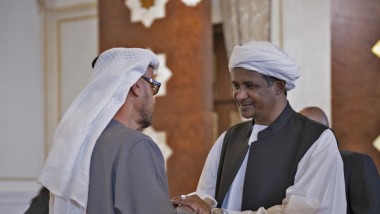How Sudan's RSF became a key ally for the UAE’s logistical and corporate interests
Experts and observers argue that part of the UAE’s motivation for funding the devastating hostilities is to guarantee its access to Sudanese land, seaports, and mineral and agricultural resources, including livestock and crops.
“The RSF is the UAE’s hand in Sudan,” said Amgad Fareid Eltayeb, an analyst and former senior aide to Sudanese Prime Minister Abdalla Hamdok.
Gulf states’ agricultural investments in Sudan to address food insecurity date back to the 1970s. The UAE imports 90 percent of its food, as water is scarce and little of its land is arable.
Abu Hamad is a massive farming project led by IHC in partnership with Dal Group, Sudan’s largest private company. This project will link the agricultural area to a new Red Sea port, Abu Amama port, constructed and operated by AD Ports Group.
Emirati investments in Sudan, however, have consistently faced resistance from locals due to Abu Dhabi’s refusal to engage in mutually beneficial projects, said Eltayeb.
“The Emiratis preferred to loot the land’s wealth,” he said. “When they failed to land grab, they began to directly colonise, by using the RSF. This happened with the cover of impunity they have from the international community”, Eltayeb, who is currently a fellow with the European Council on Foreign Relations, added.
The United Kingdom has reportedly tried to suppress scrutiny of the UAE’s role in Sudan. In June, a report from the Guardian reported that the Foreign, Commonwealth and Development Office (FCDO) pressured African diplomats not to criticise the UAE.
